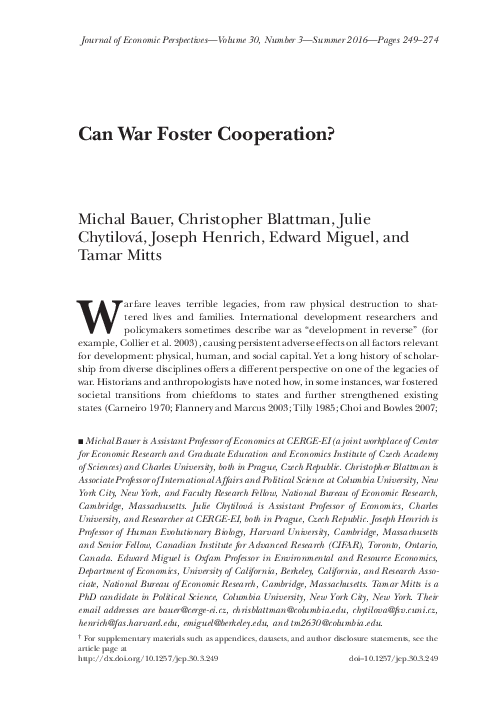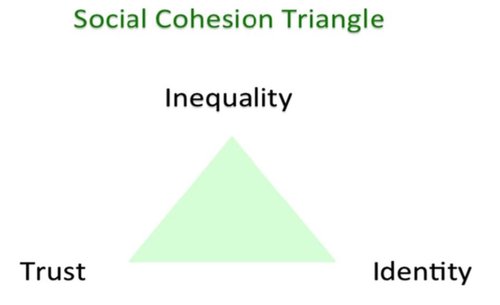Can war foster cooperation?
Key facts
Cooperation
Summary
In the past decade, nearly 20 studies have found a strong, persistent pattern in surveys and behavioral experiments from over 40 countries: individual exposure to war violence tends to increase social cooperation at the local level, including community participation and prosocial behavior. Thus while war has many negative legacies for individuals and societies, it appears to leave a positive legacy in terms of local cooperation and civic engagement. We discuss, synthesize and reanalyze the emerging body of evidence, and weigh alternative explanations. There is some indication that war violence especially enhances in-group or "parochial" norms and preferences, a finding that, if true, suggests that the rising social cohesion we document need not promote broader peace.



